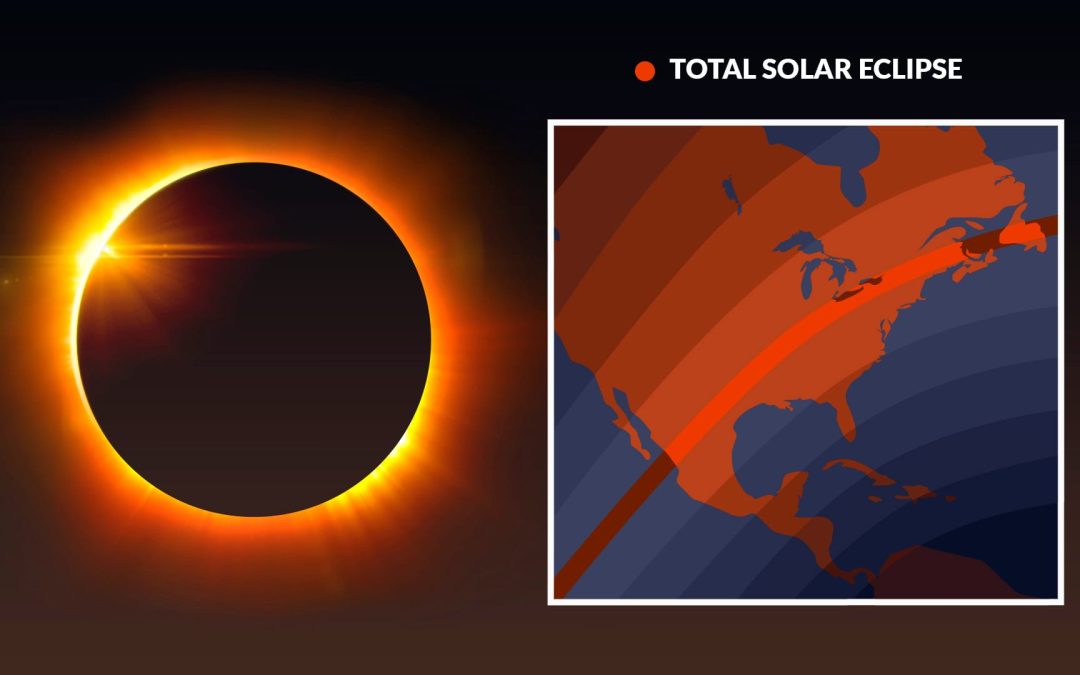On April 8, 2024, a rare celestial event will captivate the skies over North America—the Total Solar Eclipse. This awe-inspiring phenomenon, where the Moon completely covers the Sun, will traverse a path across Mexico, the United States, and Canada, offering a breathtaking spectacle for skywatchers and astronomers alike.
What is a Total Solar Eclipse?
A Total Solar Eclipse occurs when the Moon, in its orbit around Earth, passes between the Sun and Earth, casting a shadow on Earth’s surface. During the eclipse, the Moon’s shadow falls on a specific region, plunging it into temporary darkness as the Sun’s bright face is completely obscured.
Path of the Eclipse
The path of totality, where the total eclipse can be observed, will begin in Mexico and traverse through several states in the United States, including Texas, Oklahoma, Arkansas, Missouri, Illinois, Kentucky, Indiana, Ohio, Pennsylvania, New York, Vermont, New Hampshire, and Maine. It will then extend into Canada, passing through Ontario, Quebec, New Brunswick, Prince Edward Island, and Newfoundland and Labrador.
Viewing Tips and Safety Precautions
- Proper Eye Protection: It is crucial to use proper eye protection, such as eclipse glasses or handheld solar viewers, to safely observe the partial phases of the eclipse. Regular sunglasses are not sufficient for solar viewing.
- Direct Viewing During Totality: During the brief period of totality, when the Sun is completely covered by the Moon, viewers can safely look at the eclipse without eye protection. However, it is crucial to wear eclipse glasses or use solar viewers immediately before and after totality.
- Skin Safety: Even during an eclipse, the Sun’s rays can be intense. Remember to use sunscreen, wear a hat, and protect your skin to avoid sunburn.
- Indirect Viewing Methods: If you don’t have access to eclipse glasses, you can use indirect viewing methods such as pinhole projectors or homemade eclipse projectors to observe the eclipse safely.
Join Us for the Eclipse Experience
The 2024 Total Solar Eclipse promises to be a once-in-a-lifetime experience, drawing sky enthusiasts, scientists, and curious observers to witness this remarkable cosmic event. Whether you’re in the path of totality or observing from outside, be prepared to marvel at the wonders of our solar system.
Don’t miss the opportunity to witness this celestial spectacle. Mark your calendars and join us on April 8, 2024, for an unforgettable journey into the heart of a total solar eclipse.
Keep visiting QuickShare and write to us in the comments below.

